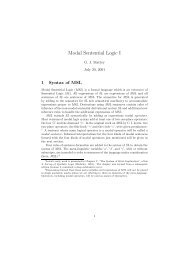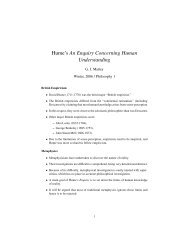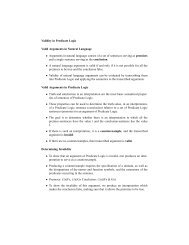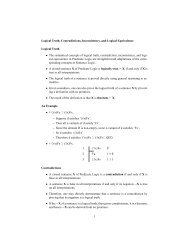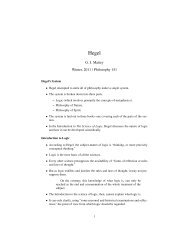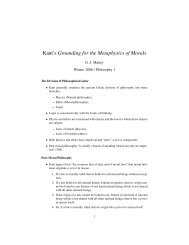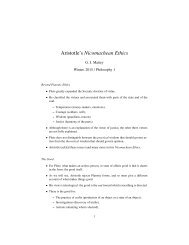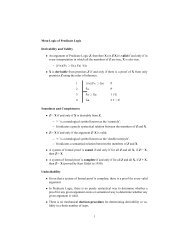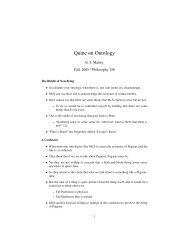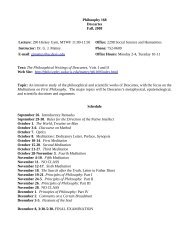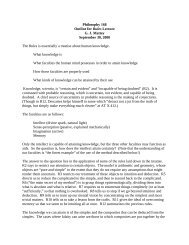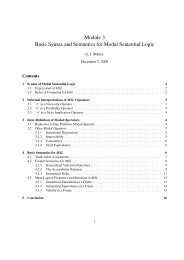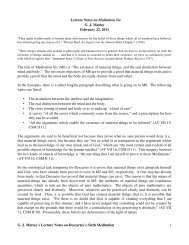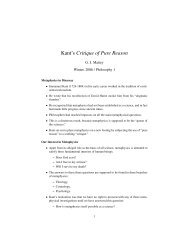Plato's Phaedo - the UC Davis Philosophy Department
Plato's Phaedo - the UC Davis Philosophy Department
Plato's Phaedo - the UC Davis Philosophy Department
You also want an ePaper? Increase the reach of your titles
YUMPU automatically turns print PDFs into web optimized ePapers that Google loves.
The Argument from Excluded Qualities• Plato constructs a final argument for immortality, to counter <strong>the</strong> objection that agiven soul might be inhabiting its last body.• This argument rests on <strong>the</strong> earlier claim that a thing can exclude a quality whichis not its opposite.1. The soul can only bring life to <strong>the</strong> body into which it enters at birth.2. So, <strong>the</strong> soul excludes <strong>the</strong> opposite of life.3. The opposite of life is death.4. So, <strong>the</strong> soul does not admit death.5. So, <strong>the</strong> soul is deathless.6. What is deathless is indestructible.7. So, <strong>the</strong> soul is indestructuble.Assessment• The <strong>the</strong>ory of forms has been described in <strong>the</strong> <strong>Phaedo</strong> to support <strong>the</strong> argumentsfor <strong>the</strong> immortality of <strong>the</strong> human soul.• Arguments for <strong>the</strong> existence of <strong>the</strong> forms, and for our knowledge of <strong>the</strong>m, mustbe given for <strong>the</strong> <strong>the</strong>ory to be credible.• The arguments for immortality seem to be very weak.• Historically, <strong>the</strong> only argument which adapted by later philosophers is related to<strong>the</strong> “Argument from Analogy.”• One tries to establish (on grounds o<strong>the</strong>r than <strong>the</strong> resemblance of <strong>the</strong> soul toforms) that <strong>the</strong> soul is simple, and <strong>the</strong>n argues from that premise to <strong>the</strong> conclusionthat <strong>the</strong> soul is immortal in <strong>the</strong> way Plato did.• This argument was convincingly attacked by Immanuel Kant in <strong>the</strong> eighteenthcentury.Aristotle’s Description of Plato’s View• Aristotle, a student of Plato, discussed <strong>the</strong> <strong>the</strong>ory of forms in <strong>the</strong> context of <strong>the</strong>ircausal role.• In any causal relation, <strong>the</strong>re is a cause and what it causes to be what it is.• On Plato’s view, <strong>the</strong>se two elements of causality are:6



